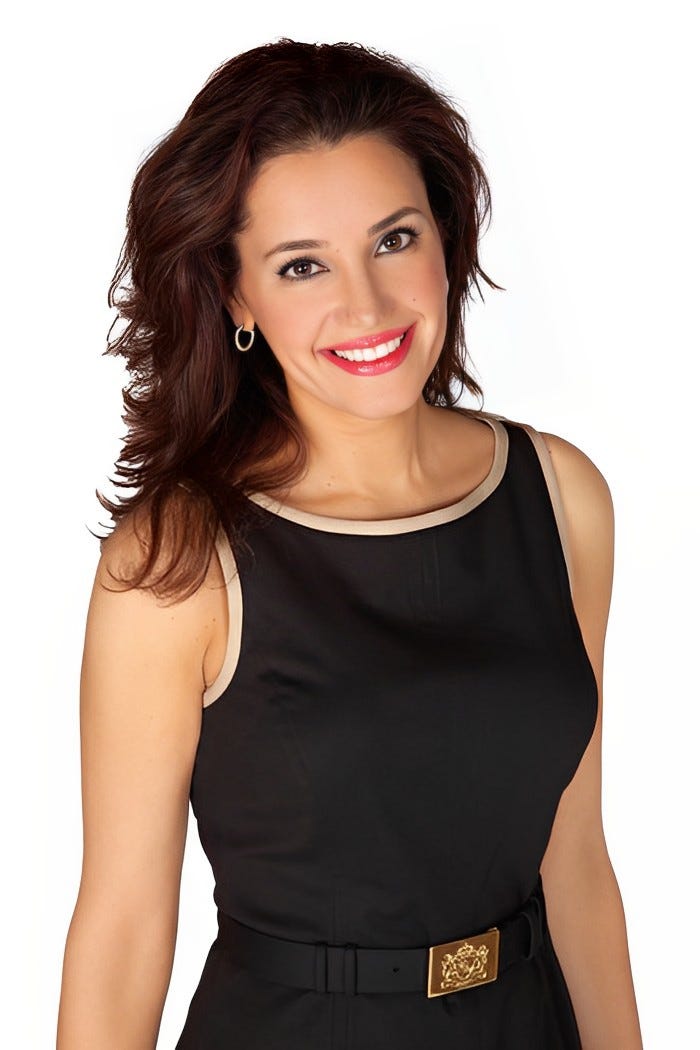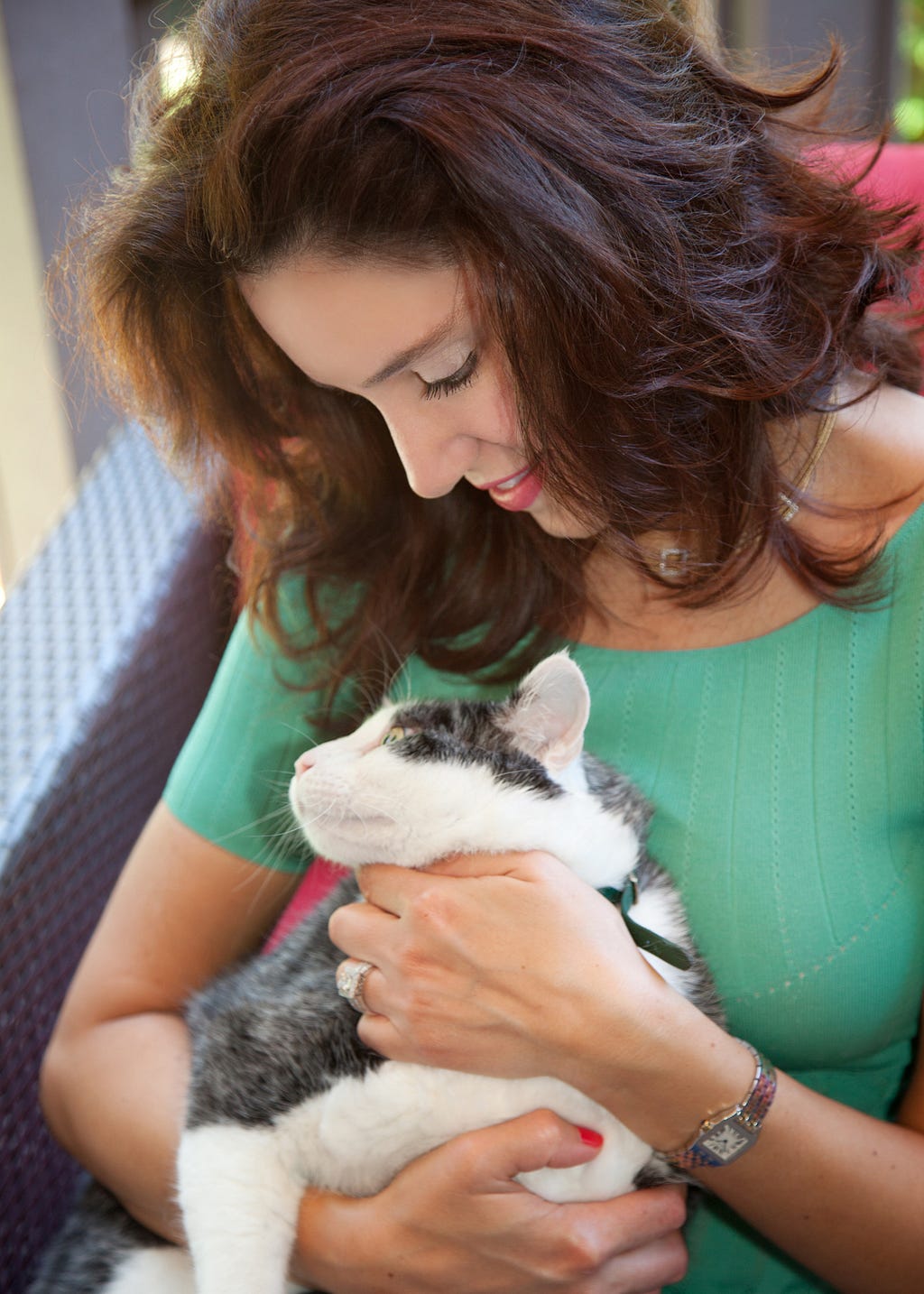
Leadership is action-oriented, and “leader” is a word that I would define as: An individual that inspires, guides, motivates, and leads either a group of people to work cohesively within an organization or another individual to take positive steps for change within an organization or social justice cause.
As part of my series about “authors who are making an important social impact”, I had the pleasure of interviewing Suzana Gartner-Vlaovic, J.D., LL.M.
Suzana Gartner-Vlaovic, J.D., LL.M. (ADR) is an animal advocate, animal law expert, retired animal rights lawyer, vegan, cruelty-free working mom and an author who is giving a voice to animals by educating families, children, groups, organizations, communities and more.
Suzana is committed to give a voice to animals and advance animal rights. She has volunteered at animal shelters since childhood. She speaks publicly on animal issues and has been interviewed on national news, radio, and podcasts and has been featured in print magazines. Her book A Voice for Animals will be available everywhere books are sold Spring, 2023.
Thank you so much for joining us in this interview series! Before we dive into the main focus of our interview, our readers would love to “get to know you” a bit better. Can you tell us a bit about your childhood backstory?
As far back as I remember I have loved animals. I am an only child and I coped better with loneliness through my interactions with animals. I made it a point to be surrounded by animals whenever I could by playing with neighbourhood cats and dogs, horseback riding, and visiting pet stores. My first pet was a friendly grey rabbit named Susie. Later on, my mother was given a small Chihuahua dog that we named George. He quickly became my best fur friend, but we lived in a rental building that did not allow pets, so my mother had to give him away (thankfully to a loving family). I was heartbroken and it was this injustice that fueled my commitment to want to speak up for animals when I grew up. My stepfather is a lawyer and he inspired me to go to law school. From childhood, I could sense that like humans, animals were loving creatures; they can experience a wide range of feelings, sensations, and emotions. They love and want to be loved. Even at a young age, I sensed that animal lives matter, they are special and have personalities and intrinsic value. My interest in helping animals has since evolved into a passion and career.
When you were younger, was there a book that you read that inspired you to take action or changed your life? Can you share a story about that?
I read Viktor E. Frankl’s Man’s Search for Meaning when I was younger and was inspired to take positive action in my life. Frankl was a Holocaust survivor and his story was very impactful. He shared in his book that he made meaning from his horrific experience. He talked about doing meaningful work and taking responsibility for ourselves. We may not be able to choose our circumstance we can choose our attitude. I want to have a life with purpose too and since I have loved animals from an early age, I have also made it a commitment to choose advocacy work that is meaningful and gives me purpose.
It has been said that our mistakes can be our greatest teachers. Can you share a story about the funniest mistake you made when you were first starting? Can you tell us what lesson you learned from that?
When I first started working as an animal lawyer, I thought that I would meet and interact with the pets that I was hired to represent. I bought treats and had a water bowl in the office. I asked one of my first clients when she was going to bring her dog into the office and she seemed surprised by this question. It was a pet custody dispute and I wanted to meet the dog who was in the middle of the couple’s custody dispute. I envisioned meeting and interacting with the animals I was representing but that isn’t the reality. I learned early on that I am hired by pet parents and although their pet’s best interests are taken into consideration, I am dealing with people and their problems more so than the animals’.
Can you describe how you aim to make a significant social impact with your book?
My aim for publishing A Voice for Animals is to make a significant social impact by inspiring others to take positive action on behalf of animals and realize that animal rights are a social justice issue. I want to educate readers on how to do well by animals and the main issues affecting them. They give so much and deserve to be treated better.
Can you share with us the most interesting story that you shared in your book?
A small shelter dog named Peanut saved the life of a child. Peanut came to a shelter after being severely abused in her former home. At two years of age, she was found with broken ribs and legs and carpet burns on her body. Her former owners were later charged with animal cruelty. Peanut was adopted into a new, loving home. One day, Peanut began barking and pacing around inside the family’s home. The husband took her outside, where she led him to an open field behind their house. There in a ditch, they found a girl, shivering and crying for help. Peanut had sensed the little girl was in danger, called attention to her, and saved her life.
There are many other heartfelt, uplifting stories of animal rescue and friendships in A Voice for Animals. Another interesting story is the friendship between a fish and a diver. My husband shared this unforgettable video with me from the Dodo. The headline read, “Fish Loves to Greet His Favorite Diver and Bring Her Gifts.” It was a remarkable, real-life story about a surprising friendship that developed between a diver named Rachel and a friendly yellow butterfly fish, which she named Sonny. I can’t wait for you to read more in my book!
What was the “aha moment” or series of events that made you decide to bring your message to the greater world? Can you share a story about that?
I wanted to write a book about companion animals, years ago, for shelter animals when I was a volunteer. But life got busy when I became a mother and I put this idea on the backburner. Then in 2018, when my fur baby and beloved dog, Charlie, passed away, I felt alone in my grief. When I shared the sad news of his passing, people told me that they felt alone in their grief when they lost their pets too. This realization cemented the framework for a book that would be dedicated to my dog and to my family as well as other animals as a way to heal from this loss. When I started writing A Voice for Animals, it was intended to be about companion animals, but as I became aware of the broader social issues affecting shelter animals, farm animals, wildlife, and the world, I realized that I needed to write about more. This book contains stories and tips on not just the better care of animals, but also society and the world at large.
Without sharing specific names, can you tell us a story about a particular individual who was impacted or helped by your cause?
A family friend made the decision to adopt a dog from an animal shelter. She shared with me that I helped her to become aware of the plight of shelter animals and how they need homes and can be wonderful, loving companions. She also revealed that it was my advocacy work that taught her about adoption rather than purchasing pets and that by doing so, she was saving an animal’s life and also making a positive difference for animals and animal rights.
Are there three things the community/society/politicians can do to help you address the root of the problem you are trying to solve?
The root of the problem is the disposability of animal lives. I give a voice to animals so that I can help society realize that animals are not objects or commodities for our use. Rather, animals are living, breathing individuals with feelings and personalities and they have an interest in their own survival. They are sentient creatures that deserve better treatment. We (humans) have a moral and ethical obligation to be kinder, and more compassionate to our fellow creatures and planet.
Communities and individuals can support local animal shelters and adopt rather than purchasing pets; they can volunteer, donate, and foster so that we can reduce pet overpopulation and save lives.
Social change precedes legislative change. Politicians can use their influence in government institutions to update animal protection laws for the better when they see that their constituents care and demand change. Positive change happens when society unites through social justice causes.

How do you define “Leadership”? Can you explain what you mean or give an example?
Leadership is action-oriented, and “leader” is a word that I would define as: An individual that inspires, guides, motivates, and leads either a group of people to work cohesively within an organization or another individual to take positive steps for change within an organization or social justice cause. For example, as an advocate, leading a group to cooperate, collaborate, and create positive change can make a huge difference for mainstream society.
I love this inspiring quote: “Be the change you wish to see in the world.” — Mahatma Gandhi. So, I lead by example. Most people that know me are well-aware that I am an animal advocate. I rescue my pets from shelters and rescues, promote animal adoption, and live a vegan and a cruelty-free lifestyle. In doing so, I am doing my part and I hope to inspire others to do the same.
What are your “5 things I wish someone told me when I first started” and why? Please share a story or example for each.
Number 1: Follow your heart and passions.
Number 2: Don’t listen to the naysayers.
Number 3: Have confidence, even if you’re just starting out.
Number 4: Know your stuff. I wish I had known that animal rights would become so popular and that so many people would be receptive to messages like “adopt don’t shop,” veganism, etc.
Number 5: Trust yourself.
Can you please give us your favorite “Life Lesson Quote”? Can you share how that was relevant to you in your life?
“Live the Life of Your Dreams: Be brave enough to live the life of your dreams according to your vision and purpose instead of the expectations and opinions of others.” — Roy T. Bennett
This life lesson quote is relevant to my life in so many ways. As an animal rights lawyer and advocate, I chose a different path from more conventional career choices. It was sometimes hard to fit in with others, especially in the beginning before animal rights became more mainstream and popular. My career path wasn’t a straight line. There were stumbling blocks and challenges that came along, but I became a trailblazer that would set the path for others. There were no other precedents to follow at that time, so I had to believe in myself even when other people doubted me.
Is there a person in the world, or in the US with whom you would like to have a private breakfast or lunch with, and why? He or she might just see this, especially if we tag them. 🙂
I would like to have a private breakfast or lunch with Oprah Winfrey because she has been a huge influence in my life. She has used her influence and television platform for good and has featured guests and celebrities that love animals. Also, Oprah inspires women to pursue their dreams and use their voices for good. I was inspired to pursue my passion and follow my heart’s desire to speak up for animals. As well, Oprah has done an amazing job at raising social awareness for animal rights and bringing this issue to mainstream society, in particular, by sharing her personal stories of her dogs, and the touching tribute to her beloved dog Sophie.
How can our readers further follow your work online?
I am available for interviews, expert commentary, features, Q&As and select byline opportunities. You can learn more at www.suzanagartner.com and follow me on Instagram (@suzanagartner @animallawadvocacy) and LinkedIn (www.linkedin.com/in/suzana-gartner-vlaovic).
This was very meaningful, thank you so much. We wish you only continued success on your great work!
Social Impact Authors: How & Why Author Suzana Gartner-Vlaovic Is Helping To Change Our World was originally published in Authority Magazine on Medium, where people are continuing the conversation by highlighting and responding to this story.
